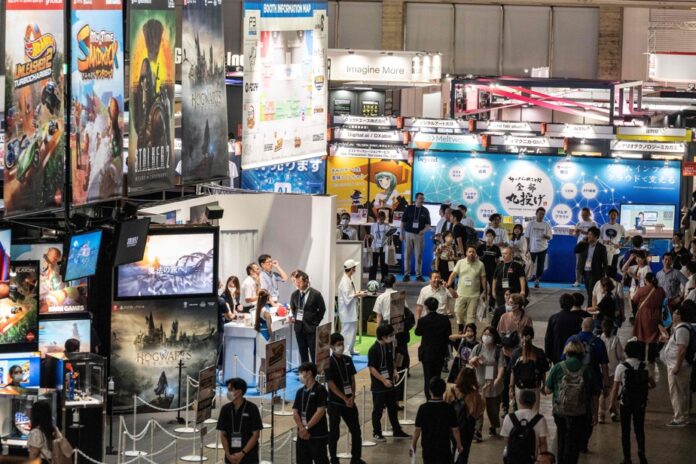(Chiba) After the years of pandemic, the Tokyo Game Show, one of the largest video game fairs in the world, returns on a large scale near the Japanese capital, where visitors can discover the latest trends until Sunday.
This show, launched in 1996, has not been a major venue for international gaming announcements for years. But while the American E3, one of the industry’s main global events, bowed out this year, the Tokyo Game Show (TGS) wishes to excel in its role as a popular Japanese gaming festival.
“Compared to last year, there are a lot of exhibitors, which means that the TGS is very lively, it’s a very good thing,” rejoices Keisuke Kikumoto, video game teacher, to AFP. at the Nihon Kogakuin school, whose students came to show off some of their creations.
After three editions reduced or organized online due to COVID-19, the organizers announce for these four days – the first two of which are reserved for professionals and the media – a record number of 787 exhibitors and 2,291 games presented, on consoles, mobile or PC.
Visitors facing the sweltering heat of the TGS exhibition halls in the far suburbs of the capital can try highly anticipated local games like Final Fantasy VII Rebirth, the second part of the remake of the famous role-playing game from the 1990s, the fighting game Tekken 8 or Like a Dragon 8, the latest installment in the Yakuza series.
Formerly reserved for consoles, many of these games are now being released on PC, a platform that has been rapidly developing in Japan in recent years, where the video game market is largely dominated by mobile games.
“Before COVID-19, PC gaming was not very visible” in the country, William Yagi-Bacon, vice president of digital sales for Japanese gaming giant Capcom, noted Thursday, explaining that lifestyles more homebodies linked to the pandemic had led many players to try it.
“Over the past five years, Japan has been one of the fastest growing major markets in the world on Steam,” said Erik Peterson, a manager of this PC gaming platform.
Revenues generated by PC games in Japan increased in 2022 by 43% year-on-year to 189.2 billion yen (1.2 billion euros at current prices), according to the Kadokawa Ascii research institute.
A number of social media influencers also walk the aisles of the show, such as the Franco-Japanese Remi Anri Doi, former captain of the Japanese handball team and one of the most followed TikTok users in the archipelago.
“Since I do live streams of video games, it gives me the opportunity to stay up to date with new titles, meet other creators and get new ideas,” he explains to the AFP, saying it was particularly interested in the use of NFTs (“non-fungible token”) in games.
These unique digital works exist thanks to blockchain technology, on which cryptocurrencies are also based. In video games, they are associated, for example, with characters or cards that players can exchange or monetize.
This practice is denounced by some players as a form of cynicism and frowned upon by certain publishers like Mojang, which announced last year that it would no longer accept NFTs in its game Minecraft, deemed contrary to its “spirit “.
“In classic games, the objects that you have crafted or evolved only exist in the game, but with blockchain, they become “assets” owned by the player, who can use them even if the game does not “exists no longer, or even in another game,” Akari Oeda, communications manager for the company Oasys, explains to AFP.
This company, developing its own blockchain for video games, has established partnerships with many major publishers, particularly in Japan (Square Enix, Bandai Namco, Sega, etc.) and in South Korea, where the fun applications of this technology are experiencing strong growth. craze.
Among the TGS exhibitors, the French company Ubisoft is also presenting its experimental title Champions Tactics due out in 2024, a game based on this technology which features fights between NFT figurines.















